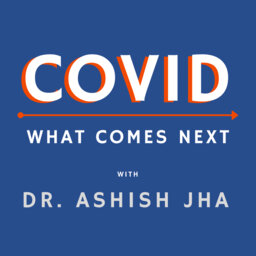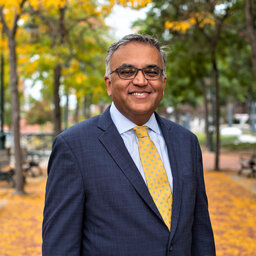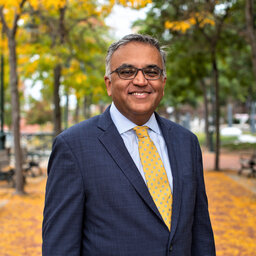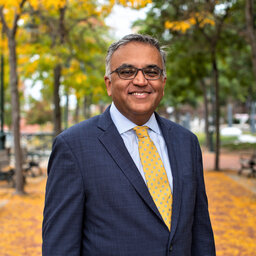Welcome to Episode 20 of “COVID: What comes next,” an exclusive weekly Providence Journal/USA TODAY NETWORK podcast featuring Dr. Ashish Jha, dean of the Brown University School of Public Health and an internationally respected expert on pandemic response and preparedness.
PROVIDENCE – The CDC’s new guidelines regarding masking and socializing are “terrific,” Brown University School of Public Health dean Dr. Ashish Jha said Tuesday – “a taste of spring” during a week when temperatures across much of the Midwest and Northeast are forecast to be unseasonably warm.
The new guidelines, long anticipated and announced on Monday, permit people who have been fully vaccinated to get together without social-distancing or masking. Fully vaccinated people may also visit with family or friends from one household who have not been vaccinated and who are at low risk of a severe case of COVID-19.
“I thought it was terrific,” Jha said during the 20th taping of the national “COVID: What Comes Next” podcast. “I thought was really good. I think they got it right. Maybe a touch on the cautious side, but not unreasonably so, given the moment.”
The pandemic expert stressed the importance of what it means to be “fully vaccinated,” saying someone in that category has reached “two weeks after their second dose of Moderna or Pfizer, or two weeks after their only dose of Johnson & Johnson.”
Jha elaborated on the new guidelines, declaring that “anybody who's fully vaccinated can hang out with anybody else who's fully vaccinated in a small group setting… Fully vaccinated people can get together for drinks or dinner and no masks, no social-distancing. If you're fully vaccinated and you're with other fully vaccinated people, you're back to normal.”
A bit more tricky, as Jha put it, are circumstances involving fully vaccinated people socializing with unvaccinated people. He gave the example of fully vaccinated people visiting with relatives who are not vaccinated, but are not at high risk of severe disease.”
The CDC “said you can go you can do this without mask-wearing, you can do this without social distancing,” Jha said. “This is huge. This is grandparents can visit their kids and grandkids and socialize and hang out and give hugs and be normal and it's totally fine as long as the parents and the children are not high risk.”
During taping of the podcast, available exclusively from The Providence Journal and the USA TODAY NETWORK, Jha addressed an issue concerning many people, namely: Can someone who is fully vaccinated transmit COVID-19 to others?
“People who've been vaccinated are much, much less likely to transmit than people who have not been vaccinated,” Jha said. “Vaccination cuts down on transmission a lot. Are we 100% sure that's true? No, but there is a lot of very strong circumstantial evidence, [though] no one has done the definitive study to prove it.”
He added: “The CDC’s guidelines essentially assume that transmission is way down if you're vaccinated. And the last point I'll make is most vaccines -- not every, but most -- reduce transmission and we should assume that the COVID vaccines do, too. It won't be 100% but my best guess is it's probably in the 80 to 90% range. That's a lot of reduction of transmission.”
Jha also answered audience questions, including from a woman scheduled for surgery less than two weeks after her second dose of the Pfizer vaccine who wanted to know if it would be safe ("I won't give a clinical answer, but I'll give a public-health answer, which is it is safe,” the doctor said.)
Another audience member asked: “Is it safe, after having been vaccinated for COVID and having waited to reach full immunity, to begin using public transportation, specifically commuter rail and subways?”
Jha’s response: “The answer is yes, but you should continue wearing a mask, at least right now until a lot of other high-risk people are vaccinated.”
This weekly podcast is hosted by G. Wayne Miller, health reporter for The Providence Journal.
 COVID: What comes next - With Dr. Ashish Jha
COVID: What comes next - With Dr. Ashish Jha


